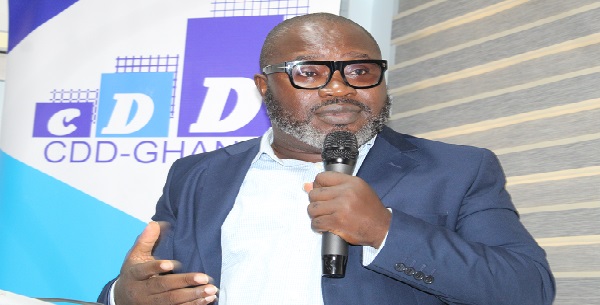There has been a significant improvement in teacher quality in the country, a research review carried out on the 2018-2021 Education Sector Medium Term Development Plan (ESMTDP), has revealed.
According to the research, the target of the government was to ensure that by 2021, there would be 75 per cent of kindergarten (KG) teachers trained, 84 per cent of primary school teachers trained and 96 per cent of junior high school (JHS) teachers trained.
However, a review of the ESMTDP indicated that currently 91.9 pet cent of KG teachers were trained, 95 per cent of primary teachers trained and 96.7 per cent of JHS teachers trained.
In the deprived communities, for example, 97 per cent of teachers had been trained on the average.
“From a baseline of 65 per cent (KG), 76 per cent (Primary), and 88 per cent (JHS) in 2016/17, the ESMTDP 2018-2021 targeted 75 per cent, 84 per cent, and 96 per cent trained teachers by 2021. By 2020/21, the targets for KG, Primary and JHS were exceeded by 16 per cent, 11 per cent, and 0.8 per cent respectively, with 91.9 per cent (KG), 95.7 per cent (Primary), and 96.8 per cent (JH5),” the report showed.
Significant
"The most significant achievement of this government since the medium-term plan was rolled out is in the area of teachers and it is significant at the same time and unprecedented.
"We have seen an intentional effort to improve teacher quality in terms of the percentage of teachers trained and that is commendable," the Executive of Africa Education Watch (Eduwatch), Kofi Asare, said during the dissemination of the Review of the ESMTDP 2018-2021 report in Accra last Thursday.
The research report was done by the Ghana Centre for Democratic Development and Eduwatch with funding from the Foreign Commonwealth and Development Office.
It was done in 15 districts and 60 basic schools across the country.
Mr Asare said although there had been an improvement in teacher quality, it did not reflect in the learning outcomes, meaning that there was something wrong somewhere.
Moreover, he said the report indicated that there was no improvement in the equitable distribution of teachers.
BECE
He explained that an analysis of the Basic Education Certificate Examination (BECE) pass rate indicated a national pass rate of 76.03 per cent with subject baselines of 75.60 per cent (English), 76.40 per cent (Maths), 76.00 per cent (Social Studies) and 76.10 per cent (Science) in the 2016/17 academic year before the inception of the ESMTDP 2018-2021.
By 2020/21, he said, the national pass rate had declined marginally to 75.05 per cent.
“Subject analyses show that with the exception of Maths, where the end line performance increased somewhat from 76.2 per cent in 2016/17 to 76.4 per cent in the end line performance in Science (75.20 per cent), English (74.40) and Social Studies (74.40 per cent) remained unchanged (74.40 per cent).
Mr Asare said factors including the lack of textbooks, inadequate teachers, poor teaching supervision, and lack of conducive learning environments in some schools were likely to negatively affect student performance and must be addressed.
Classes without teachers
By 2020, the Eduwatch Executive Director said there were 100,577 trained teachers (excluding school heads) teaching in 92,346 primary school classrooms nationwide, portraying a national surplus of 8,231 trained teachers at the primary school level.
In deprived districts, only 26,251 trained teachers (excluding school heads) were handling the 31,500 primary school classrooms, depicting a trained teacher deficit of 5,249.
Deployment of trained teachers
On teacher deployment, he said the quality of teaching was a product of quality instruction delivered by trained and competent teachers and that explained why the deployment of trained teachers was a crucial indicator of quality in the ESMTDP 2018-2021.
Solution
In the recommendations, the report suggested, among other things, that the next medium-term strategy should focus on adopting an affirmative approach to bridging the gap between endowed schools and deprived schools.
Commenting on the report, a Senior Lecturer of the Faculty of Education at the University of Cape Coast, Dr Vera Arhin, said she was happy that the report focused on the basic educational level which was the foundation for lifelong learning across the world.
For his part, an educational consultant and former Director-General of the Ghana Education Service, Charles Aheto Tsegah, said the event was historic since it was the first time a medium-term development plan was being reviewed.
“Since the ministry changed the strategy for reviewing education performance, this review comes as a very independent presentation,” he said.
The Programmes Manager for CDD-Ghana, Paul Osei-Kuffour, said getting pupils enrolled at the right age was important.
“We did a study recently in the local assembly and found out that, all the services under their jurisdiction are not being delivered to satisfaction either to the policy requirements or are not responsive to the concerns of their communities,” he said.

